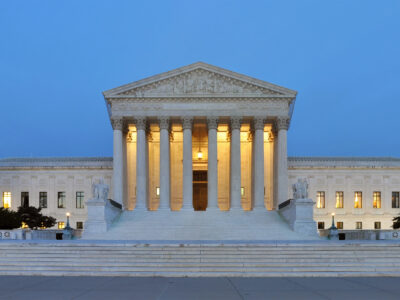Memo to EPA: It’s Illegal to Respond to Letters from Senators (at least in the Eighth Circuit)
I thought about entitling this post “Lamest Judicial Opinion of the Year.” The case is called Iowa League of Cities v. EPA. This Eighth Circuit opinion says that two letters from EPA to a U.S. Senator are legally binding agency rules, The court then solemnly invalidates the letters because EPA failed to get public notice and comment before responding to the Senator’s questions. Also, apparently, EPA is supposed to publish its responses to letters from Congress in the Federal Register if EPA says anything to the Senator beyond quoting existing agency regulations. (What’s next, you might wonder, judicial review of tweets by agency staff?)
To make this even crazier, the people complaining that EPA had answered the Senator’s letter actually asked the Senator to request the agency’s view in the first place. If they thought it would be illegal for the agency to respond to the Senator, why did they arrange for the Senator to start the exchange in the first place? It seems a bit like entrapment.
This case is about an obscure issue relating to municipal treatment plants. The court’s opinion is so badly written that we never find out exactly what the Senator asked, precisely what EPA said in its letters, or for that matter what officer within the agency wrote the responses or what justifications were given for the positions asserted in the letters. Besides striking down the letters on procedural grounds, the opinion invalidates one of the letters for taking what the court thinks is a legally unsound position, but without giving any clue about what arguments EPA may have made in favor of that position. The court also manages to convince itself that the industry suffered injury sufficient to create standing from the mere fact that EPA wrote the letters.
If this opinion is taken seriously, the moral for the agency seems to be: if you get any letters from members of Congress, publish the letters in the Federal Register and request public comment before responding. Given the bizarre nature of the holding, however, this is more likely a one-off opinion whose reasoning will be completely ignored in later cases — even by the same judges who joined the opinion. Still, you have to wonder what on earth they were thinking when they decided this case.







Reader Comments